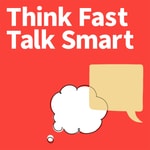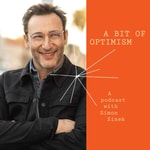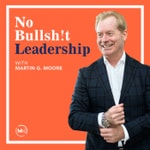Freakonomics Radio – Détails, épisodes et analyse
Détails du podcast
Informations techniques et générales issues du flux RSS du podcast.

Freakonomics Radio
Freakonomics Radio + Stitcher
Fréquence : 1 épisode/7j. Total Éps: 848

Classements récents
Dernières positions dans les classements Apple Podcasts et Spotify.
Apple Podcasts
🇨🇦 Canada - documentary
28/07/2025#4🇨🇦 Canada - societyAndCulture
28/07/2025#14🇨🇦 Canada - General
28/07/2025#84🇬🇧 Grande Bretagne - documentary
28/07/2025#11🇬🇧 Grande Bretagne - societyAndCulture
28/07/2025#46🇩🇪 Allemagne - documentary
28/07/2025#18🇺🇸 États-Unis - documentary
28/07/2025#3🇺🇸 États-Unis - societyAndCulture
28/07/2025#14🇫🇷 France - documentary
28/07/2025#26🇨🇦 Canada - documentary
27/07/2025#4
Spotify
🇺🇸 États-Unis - top
28/07/2025#144↘🇺🇸 États-Unis - society & culture
28/07/2025#18↗🇺🇸 États-Unis - society & culture
27/07/2025#19↘🇺🇸 États-Unis - top
27/07/2025#139↘🇺🇸 États-Unis - top
26/07/2025#133↗🇺🇸 États-Unis - society & culture
26/07/2025#18↘🇺🇸 États-Unis - society & culture
25/07/2025#17→🇺🇸 États-Unis - top
25/07/2025#134↘🇺🇸 États-Unis - society & culture
24/07/2025#17↘🇺🇸 États-Unis - top
24/07/2025#130↘
Liens partagés entre épisodes et podcasts
Liens présents dans les descriptions d'épisodes et autres podcasts les utilisant également.
See allQualité et score du flux RSS
Évaluation technique de la qualité et de la structure du flux RSS.
See allScore global : 43%
Historique des publications
Répartition mensuelle des publications d'épisodes au fil des années.
602. Is Screen Time as Poisonous as We Think?
Épisode 602
jeudi 12 septembre 2024 • Durée 40:29
Young people have been reporting a sharp rise in anxiety and depression. This maps neatly onto the global rise of the smartphone. Some researchers are convinced that one is causing the other. But how strong is the evidence?
- SOURCES:
- David Blanchflower, professor of economics at Dartmouth College.
- Lauren Oyler, novelist and cultural critic.
- Andrew Przybylski, professor of human behavior and technology at the University of Oxford.
- RESOURCES:
- "The Declining Mental Health Of The Young And The Global Disappearance Of The Hump Shape In Age In Unhappiness," by David G. Blanchflower, Alex Bryson, and Xiaowei Xu (NBER Working Paper, 2024).
- "Further Evidence on the Global Decline in the Mental Health of the Young," by David G. Blanchflower, Alex Bryson, Anthony Lepinteur, and Alan Piper (NBER Working Paper, 2024).
- No Judgment: Essays, by Lauren Oyler (2024).
- "To What Extent are Trends in Teen Mental Health Driven by Changes in Reporting?" by Adriana Corredor-Waldron and Janet Currie (Journal of Human Resources, 2024).
- The Anxious Generation: How the Great Rewiring of Childhood Is Causing an Epidemic of Mental Illness, by Jonathan Haidt (2024).
- "Global Well-Being and Mental Health in the Internet Age," by Matti Vuorre and Andrew K. Przybylski (Clinical Psychological Science, 2023).
- "Are Mental Health Awareness Efforts Contributing to the Rise in Reported Mental Health Problems? A Call to Test the Prevalence Inflation Hypothesis," by Lucy Foulkes and Jack L. Andrews (New Ideas in Psychology, 2023).
- "The Association Between Adolescent Well-Being and Digital Technology Use," by Amy Orben and Andrew K. Przybylski (Nature Human Behaviour, 2019).
- iGen: Why Today's Super-Connected Kids Are Growing Up Less Rebellious, More Tolerant, Less Happy — and Completely Unprepared for Adulthood — and What That Means for the Rest of Us, by Jean M. Twenge (2017).
- EXTRAS:
- "Are You Caught in a Social Media Trap?" by Freakonomics Radio (2024).
- "Are We Getting Lonelier?" by No Stupid Questions (2023).
- "Is Facebook Bad for Your Mental Health?" by Freakonomics, M.D. (2022).
- "Why Is U.S. Media So Negative? (Replay)," by Freakonomics Radio (2022).
601. Multitasking Doesn’t Work. So Why Do We Keep Trying?
Épisode 601
jeudi 5 septembre 2024 • Durée 58:04
Only a tiny number of “supertaskers” are capable of doing two things at once. The rest of us are just making ourselves miserable, and less productive. How can we put the — hang on a second, I've just got to get this.
Come see Stephen Dubner live!
“A Questionable Evening: A strategic interrogation from two people who ask questions for a living,” featuring Stephen Dubner and PJ Vogt from Search Engine.
Thursday, Sept. 26th, at the Bell House in Brooklyn, NY.
https://www.eventbrite.com/e/a-questionable-evening-evening-with-stephen-dubner-and-pj-vogt-tickets-1002544747327
- SOURCES:
- Olivia Grace, senior product manager at Slack.
- Gloria Mark, professor of computer science at the University of California, Irvine.
- David Strayer, professor of cognition and neural science at the University of Utah.
- RESOURCES:
- "Immersion in Nature Enhances Neural Indices of Executive Attention," by Amy S. McDonnell and David L. Strayer (Nature: Scientific Reports, 2024).
- "Contribution to the Study on the ‘Right to Disconnect’ From Work. Are France and Spain Examples for Other Countries and E.U. Law?" by Loïc Lerouge and Francisco Trujillo Pons (European Labour Law Journal, 2022).
- "Task Errors by Emergency Physicians Are Associated With Interruptions, Multitasking, Fatigue and Working Memory Capacity: A Prospective, Direct Observation Study," by Johanna I. Westbrook, Magdalena Z. Raban, Scott R. Walter, and Heather Douglas (BMJ Quality & Safety, 2018).
- "Supertaskers: Profiles in Extraordinary Multitasking Ability," by Jason M. Watson and David L. Strayer (Psychonomic Bulletin & Review, 2010).
- "The Effects of Video Game Playing on Attention, Memory, and Executive Control," by Walter R. Boot, Arthur F. Kramer, Daniel J. Simons, Monica Fabiani, and Gabriele Gratton (Acta Psychologica, 2008).
- "'Constant, Constant, Multi-Tasking Craziness': Managing Multiple Working Spheres," by Victor M. González and Gloria Mark (Proceedings of the 2004 Conference on Human Factors in Computing Systems, CHI, 2004).
- EXTRAS:
- "Why Is the U.S. So Good at Killing Pedestrians?" by Freakonomics Radio (2023).
- "Why Did You Marry That Person?" by Freakonomics Radio (2022).
- "How Much Should We Be Able to Customize Our World?" by No Stupid Questions (2021).
598. Is Overconsolidation a Threat to Democracy?
Épisode 598
jeudi 25 juillet 2024 • Durée 37:11
That’s the worry. Even the humble eyeglass industry is dominated by a single firm.
We look into the global spike in myopia, how the Lemtosh got its name, and what your eye doctor knows that you don’t. (Part two of a two-part series.)
- SOURCES:
- Maria Liu, professor of clinical optometry at the University of California, Berkeley.
- Harvey Moscot, C.E.O. of MOSCOT Eyewear and Eyecare.
- Zachary Moscot, chief design officer of MOSCOT Eyewear and Eyecare.
- Cédric Rossi, equity research analyst at Bryan Garnier.
- Tim Wu, professor of law, science and technology at Columbia Law School.
- RESOURCES:
- "Meta in Talks to Buy Stake in Eyewear Giant EssilorLuxottica," by Salvador Rodriguez and Lauren Thomas (The Wall Street Journal, 2024).
- "The Story Behind Soaring Myopia Among Kids," by Manoush Zomorodi, Katie Monteleone, Sanaz Meshkinpour, and Rachel Faulkner White (Body Electric, 2024).
- "Why So Many People Need Glasses Now," by Christophe Haubursin (Vox, 2023).
- "Eyes on World Sight: Taking Action to Advance Eye Health in China," by EssilorLuxottica (2022).
- "Global Prevalence of Myopia and High Myopia and Temporal Trends from 2000 through 2050," by Brien A. Holden, Timothy R. Fricke, Serge Resnikoff, et al. (Ophthalmology, 2016).
- "Increased Prevalence of Myopia in the United States Between 1971-1972 and 1999-2004," by Susan Vitale, Robert D. Sperduto, and Frederick L. Ferris (Archives of Ophthalmology, 2009).
- EXTRAS:
- "The Economics of Eyeglasses," series by Freakonomics Radio (2024).
Why Does the Most Monotonous Job in the World Pay $1 Million? (Ep. 493 Update)
jeudi 16 février 2023 • Durée 53:00
Adam Smith famously argued that specialization is the key to prosperity. In the N.F.L., the long snapper is proof of that argument. Here’s everything there is to know about a job that didn’t used to exist.
The Economics of Everyday Things: Used Hotel Soaps
lundi 13 février 2023 • Durée 16:59
Hotel guests adore those cute little soaps, but is it just a one-night stand? In our fourth episode of The Economics of Everyday Things, Zachary Crockett discovers what happens to those soaps when we love ’em and leave ’em.
533. Will the Democrats “Make America Great Again”?
Épisode 533
jeudi 9 février 2023 • Durée 50:39
For decades, the U.S. let globalization run its course and hoped China would be an ally. Now the Biden administration is spending billions to bring high-tech manufacturing back home. Is this the beginning of a new industrial policy — or just another round of corporate welfare?
The Economics of Everyday Things: “My Sharona”
lundi 6 février 2023 • Durée 18:18
Can a hit single from four decades ago still pay the bills? Zachary Crockett f-f-f-finds out in the third episode of our newest podcast, The Economics of Everyday Things.
Is Economic Growth the Wrong Goal? (Ep. 429 Update)
jeudi 2 février 2023 • Durée 41:45
The economist Kate Raworth says the aggressive pursuit of G.D.P. is trashing the planet and shortchanging too many people. She has proposed an alternative — and the city of Amsterdam is giving it a try. How's it going?
The Economics of Everyday Things: Girl Scout Cookies
lundi 30 janvier 2023 • Durée 14:14
How does America's cutest sales force get billions of Thin Mints, Samoas, and Tagalongs into our hands every year? Zachary Crockett finds out in the second episode of our newest podcast, The Economics of Everyday Things.
532. Do You Know Who Owns Your Vet?
Épisode 532
jeudi 26 janvier 2023 • Durée 46:42
When small businesses get bought by big investors, the name may stay the same — but customers and employees can feel the difference. (Part 2 of 2.)









